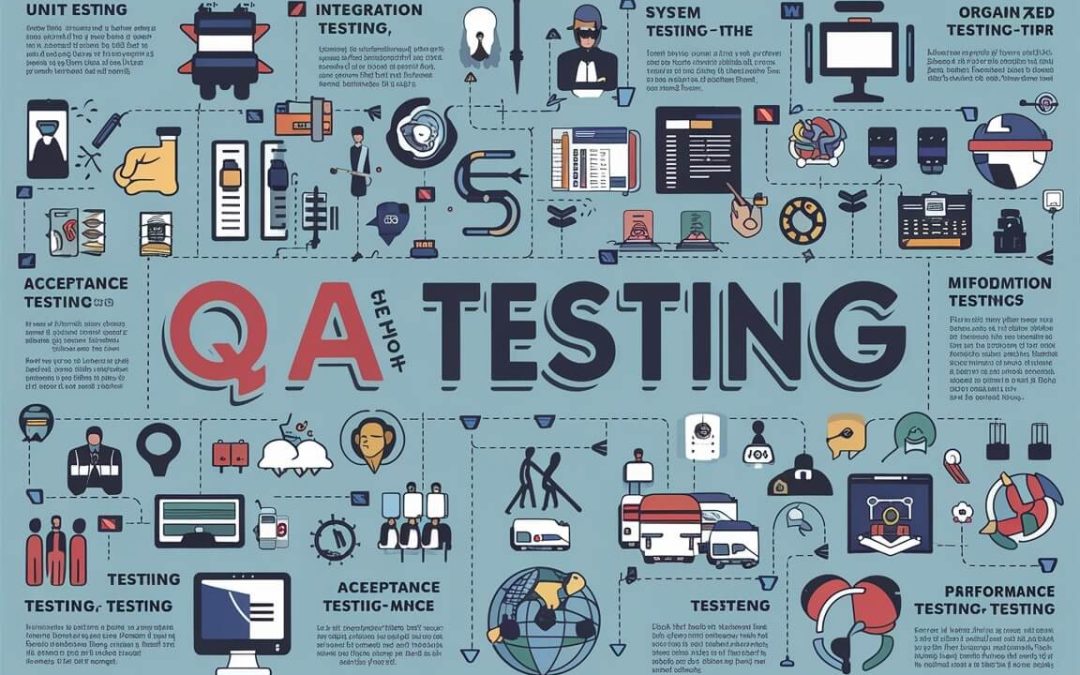Top 18 AI use cases in real estate
Let us look at 18 ways AI is helping real estate pros do their jobs better and offer more to their clients.
1) Find New Clients

Getting new clients is always on the mind of a real estate agent. Luckily, AI can make finding new leads a bit easier.
AI Use Cases for Real Estate Professionals encompass a wide range of applications, from property valuation to market analysis.
Some AI tools can go through online property listings and databases to find sellers or buyers who fit what the agent is looking for. Then, these tools can send out messages made just for each potential client’s needs.
AI also comes in handy with chatbots on an agent’s website.
When someone drops by the site, the chatbots can start a friendly chat, answer simple questions about what the agent offers, and even get contact info to turn site visitors into leads.
Best part? These chatbots work all day every day so no chance of a new client slipping through the cracks.
2) Analyze Housing Data
Understanding housing market data is crucial for setting home prices right and giving clients good advice.
But going through all that data isn’t easy. That’s where AI shines – it can quickly look at tons of data from different places like property listings, sales info, economic reports, and more.
AI has this cool ability to see trends and patterns that we might not notice right away.
3) Improve Home Search

For home buyers, AI can vastly improve the home search experience.
Instead of buyers sifting through hundreds of listings trying to find what matches their criteria, the AI can get a detailed understanding of what the buyer wants and needs in a new home through a conversational interface.
It will learn the buyer’s preferences for location, size, amenities, budget, and more.
The AI can then continuously scan listings as they hit the market and proactively send the best matches to the buyer’s email or mobile app. No more missing out on a great listing.
4) Create Listing Descriptions
Creating descriptions that make a house stand out without exaggerating can be considered an art form.
Writing aids powered by AI can put together catchy descriptions by looking at the details of the property.
This includes how big the house and the land are, how many rooms it has, where it’s located, what you can find nearby, and any updates made to it recently.
These tools can then whip up an initial draft that shines a spotlight on all the best parts of the home.
They do this by using everyday language, colorful expressions, and all the right words from the world of real estate.
The agent can then tweak the AI’s draft as needed. These optimized descriptions help listings get noticed and attract more buyers.
5) Enhance Property Photos
Great pictures are super important when selling a home since they’re usually what people see first. AI can help make these pictures look even better, making everything pop.
This tech can fix up the photos all by itself. It can make dark places look bright, clean up messy backgrounds, and fix any little imperfections.
That way, every picture makes the house look its absolute best. Some AI tools can even digitally stage homes by adding realistic-looking furniture and decor.
6) Virtual Home Tours

Checking out a home by actually walking through it is often the best method, but if that’s not an option, using a virtual 3D tour created with AI technology is the next best thing.
They use advanced cameras to take pictures of every room. Then, these pictures are put into an AI system that creates a full 3D model of the house.
People interested in the house can explore this model on their devices like computers, phones, or even VR headsets.
This lets them move around inside the virtual house as though they were there.
They can look around each room from different angles, zoom in to see details, and understand how the house is set up. It feels very real.
Virtual staging is an innovative AI Use Case for Real Estate Professionals, allowing them to showcase properties with digitally furnished interiors.
7) Answer Client Questions
When someone wants to buy or sell a place, they often have a lot of questions. But real estate agents can’t always be around to answer them right away. This is why AI chatbots and virtual assistants are super helpful.
These smart helpers know a lot about buying or selling places, what’s happening in the local real estate scene, and all the steps involved in making a deal.
So, people can get answers quickly anytime they need, day or night. If there’s a tricky question, the AI can ask a real person for help.
AI in real estate empowers professionals to analyze vast amounts of data to identify market trends and predict property values accurately
8) Automate Marketing Tasks
Top real estate agents always share info about their work and available houses in many ways. AI can do a lot of these jobs for them, making things easier and saving time.
For example, the AI could automatically generate social media posts about a new listing with engaging photos, videos, descriptions, and the listing link.
The posts could then be scheduled to go out on Facebook, Instagram, Twitter, and more at optimal times for visibility.
AI can also help by sending special emails to people who might want to buy a house.
These emails can even use the person’s name and talk about the kind of house they like, based on what they’ve told the AI before.
AI in real estate also facilitates automated property valuation, allowing professionals to assess property values swiftly and accurately.
9) Streamline Paperwork
In every real estate deal, there are a lot of different papers to fill out and sign. Forms, agreements, you name it.
All of this documentation requires countless hours of effort to read, complete, proofread, and revise every little detail.
AI document processing can automate this whole workflow. The agent simply provides the AI with the required information about the clients, property, and transaction details.
The AI then intelligently fills out all of the paperwork, automatically formatting it properly and ensuring total accuracy.
This streamlined process eliminates countless hours of busy work for agents. It also reduces costly errors that could arise from manually filling out every form and contract.
AI tools for real estate agents facilitate document management and contract analysis, reducing administrative burdens and minimizing errors.
10) Negotiate Better Deals
AI is well-suited for crunching data to develop optimal strategies.
In real estate negotiations, the AI can analyze all the recent comparable home sales data in an area to determine what fair market value should be for the property in question.
The AI can then guide the agent on how to negotiate the best possible price and terms for their client based on current market conditions.
It may suggest starting higher or lower than expected, targeting a certain price range, or pinpointing creative incentives or tradeoffs to propose.
11) Plan Open Houses

Hosting a successful open house requires lots of planning and attention to detail on the agent’s part. AI automation can handle many of these tasks seamlessly.
First, the AI can analyze market data to determine the best date and time window for maximum attendance based on trends and buyer behaviors.
It can then assemble a strategic guest list of realtors and potential buyers to invite by email, text, and print mailings.
On open house day, the AI handles things like sending reminder notifications, routing callers to digital receptionists, capturing visitors’ contact info, answering typical questions, and providing visitors access to the property’s virtual tour and marketing materials.
12) Offer 24/7 Customer Service
In the world of AI, your real estate business can provide top-notch customer service around the clock through chatbots and virtual assistants. No more client calls or inquiries going unanswered when you’re unavailable.
The AI assistant can handle common client questions like “What’s the status of my offer?” or “When is the home inspection scheduled for?” or even check on listing updates or open house schedules. For more complex issues, the AI can loop in you as the human agent.
It creates a better experience where clients feel heard and supported throughout the buying/selling process.
The AI frees you up from time-consuming customer service while handling those duties seamlessly.
13) Stay Organized
Being a real estate expert means you’re always busy.
You have many meetings, deadlines, tasks to finish, and promises to clients every day. Sometimes, it’s hard not to feel stressed out or forget things.
Imagine having an AI helper that can organize your schedule like a combination of a butler and a secretary.
This assistant can help keep everything for you.
The AI seamlessly handles calendaring, scheduling meetings, creating agendas, coordinating with clients and other agents, providing reminders, tracking deadlines, managing documents, and keeping you focused.
Never again will you miss an important closing or double-book an open house. The AI keeps every aspect of your schedule and business processes on track and organized.
14) Manage Finances

Tracking expenses, managing cash flow, calculating commissions, and properly filing taxes are essential but tedious financial tasks. AI tools provide a modern way for real estate agents to streamline their finances.
Specialized AI can integrate with bank accounts and digitally capture every expense made like marketing costs, mileage, membership dues, etc.
The AI categorizes each transaction properly and monitors income from recent sales. It can also calculate quarterly tax estimates and identify opportunities for deductions.
This automated financial management saves agents significant time from manual data entry and bookkeeping. It also reduces the risk of costly mistakes made by human error.
The reporting features provide real-time financial insights to guide business decisions.
15) Continuing Education
Regulations, laws, ethics requirements, and best practices are continuously evolving for real estate professionals. Agents have to stay up-to-date through continuing education courses.
AI platforms tailor education programs to each agent’s state and specialty area.
Course material is presented through interactive video lessons, quizzes, virtual coaching, and more. An AI assistant provides tutoring and explanations on any confusing topics.
Progress and knowledge retention are monitored to ensure mastery before certification.
Dynamic AI-based learning is much more effective than static textbooks and PowerPoints. This continuing education keeps agents compliant and working at the highest professional level.
16) Collaborate with Teams
Lots of the top real estate agents are part of bigger groups or offices that help them do their job.
AI tools are extremely valuable for enabling seamless collaboration amongst these groups.
AI-powered project management platforms create a central hub where every team member can access listings, client info, transaction details, schedules, documents, and more.
Everyone stays in sync automatically as the AI assistant updates tasks, shares files, communicates updates, and manages workflows.
The AI can also analyze team performance metrics to identify areas for improvement. This constant refinement helps teams operate more efficiently.
17) Build a Strong Brand
Artificial intelligence solutions are transforming the real estate industry, offering benefits for professionals.
In real estate, a polished brand presence is critical for attracting new clients and growing your business. AI can assist with crafting an impressive brand from top to bottom.
Using an AI design tool, you can create a modern logo with the perfect look and color scheme with just a few inputs about your brand identity and style preferences.
The AI explores countless concepts and generates attractive options for your review.
Another AI tool could automatically build you a professional website with features like integrated MLS listings, contact forms, employee bios, virtual tours, market reports, and more. Everything follows design best practices and is optimized for search engines.
Your AI assistant handles tasks like social media management by posting engaging content regularly across platforms.
This consistent, multi-channel branding gets you noticed while saving you tons of time and effort.
18) Predictive Analytics

Having a data-driven understanding of future real estate trends gives savvy agents an important edge over competitors.
AI is good at looking at past and present facts to guess what will happen next and spot chances.
When it checks out stuff like where people live, jobs, rent costs, new buildings, and where folks are moving to and from, AI can tell which places might have more or fewer people wanting homes in the future.
This guides decisions like where to focus marketing and prospecting efforts.
The AI can also forecast pricing trajectories for certain home types, neighborhoods, or price tiers over periods of months or years.
Agents can then advise clients on timing factors for listing, buying, or investing based on these AI-generated market outlook reports.
Conclusion
Will AI Replace Real Estate Agents?
No! Using AI tools like automation, predicting trends, online experiences, and helping customers, real estate agents can work smarter and offer top-notch software solutions.
Instead of worrying about AI taking over, smart agents use it to get ahead. AI does the boring stuff and gives insights based on data.
This lets individuals spend more time on personal touches, like making connections and sealing good deals.
Individuals who are quick to use AI will stand out in the fast-changing world of real estate. Don’t miss out – find out which AI features can boost your business.
Are you ready to see how AI can lift your real estate game?
FAQs
1) Do I need to be a tech expert to use AI for real estate?
No, most AI tools are designed to be user-friendly with simple interfaces. They automate complex processes so minimal technical skills are required.
2) How much does it cost to implement AI solutions?
Costs can vary, but many AI tools have affordable subscription models. The time and effort savings often offset the investment significantly.
3) Is my client data safe and private with AI assistants?
Yes, reputable AI providers prioritize robust data security and comply with privacy regulations to protect sensitive client information.





